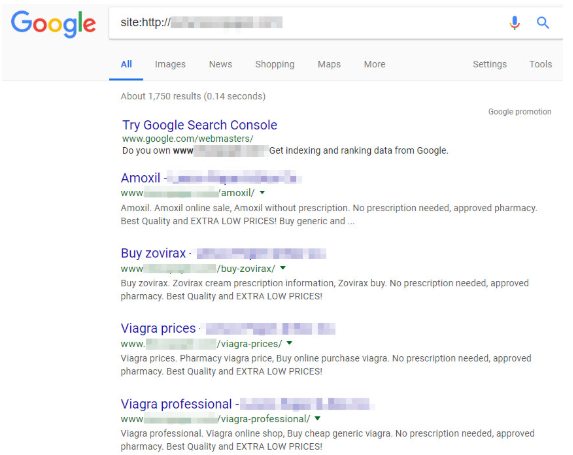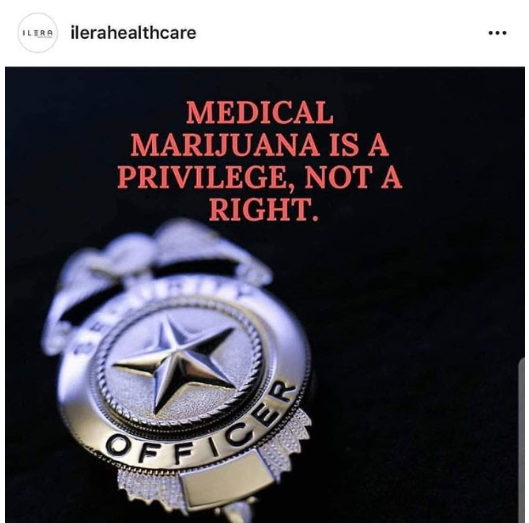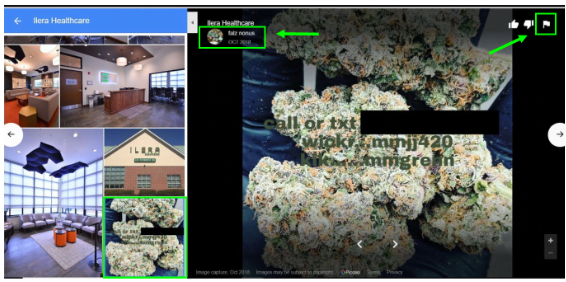Business owners can easily get overwhelmed with keeping up with their Google presence – from reviews, to pay-per-click ads, to organic search ranks, to knowledge panel content and their overall Google My Business listing, there are a lot of different (often changing) avenues to maneuver and keep tabs on. And when something goes awry with a part of their online presence that they’ve worked so hard to build – such as a negative, unsubstantiated review – it’s natural to take it personally, and want to immediately respond. However, if this is done quickly without weighing the consequences, it can have a compounding, snowball effect and actually make matters worse.
Recently, an online photo sparked a fire for a Philadelphia region medical marijuana dispensary, which eventually led to the company issuing a public apology.

(Ilera Healthcare, located in Plymouth Meeting. The street address is legitimate according to their website.)
The photo in question was of marijuana, with text overlay including contact information for an alleged dealer.

Whenever I’m told by someone they had their website hacked, I’m usually thinking of something different than a Microsoft Painted image that probably took a minute to make and post…well, maybe two minutes to find that perfect shade of green for the text.
Here is what a typical website hack would yield on Google in my experience:

(The Google results you see are real, only the domain has been hidden to protect the innocent.)
This anonymous website currently has hundreds of these spam-type pages indexed in Google, infesting their results to the point you can’t even find their real website.
Ilera Healthcare’s response in a letter to patients included a mention of “black-market dealers who diverted Ilera proprietary contact and product information,” which led some to believe that this was a data breach of Facebook-sized proportions – and the “hack” myth was born.
Perhaps out of fear of losing their current and potential customers, the following image was posted on their Instagram account with the statement, “Don’t jeopardize your right to use medical marijuana. Medical marijuana can only be sold through approved dispensaries with a valid medical card.”

This post has since been removed from their Instagram account.
However, customers and medical marijuana supporters were not enthused with this stance, and many threatened to boycott. This led to an apology from the company’s COO stating, “We apologize to anyone who was offended. I personally want to say I’m sorry. It was a bad response to a bad problem. It happened so fast and wasn’t vetted. But, I can assure there was no patient data breached and all patient information is safe.”
Fixing the “Google Hack”
One Google photo led to a lot of trouble for this particular business, but how did it get there in the first place? Google relies heavily on crowdsourcing information from people about physical places on Google Maps. Various contributions are made to your business listing by users through business reviews, yes and no answers, descriptors, and photos.
In this case, we can see that the photo was simply added by a user and it has been mixed in with the other photos from Google and the owner. What we need to do is flag the photo for removal, state our case to the Google moderators, and hope for the best.

It’s always a good idea to keep on top of your Google My Business listing photos in addition to reviews and questions. Owners and managers of GMB listings are notified through email when new reviews, questions, and photos are added to the listing. I’ve personally had a variety of strange and unrelated photos removed from business listings over the years. From unexpected selfies to dogs defecating on a sidewalk outside the business, it seems there is no filter, so watch what pops up on your Maps listing.
What Else Can We Learn From This Situation?
When something adversely impacts your company’s appearance online, whether it’s a bad review, strange business photo, or even a legitimate website hack, do not overreact to the circumstances at hand. It’s always best to remain calm and analyze the situation in a controlled manner to prevent a series of mistakes that can threaten your business more so than the original problem.
While it is possible to have content on Google removed if it violates Google’s guidelines, come up with a backup plan that keeps your business’ longterm online reputation in mind and adheres to best practices for online reputation management. If you need help managing your Google presence, be sure to contact an experienced digital marketing consultant today.

